It’s not up for debate that in the United States, we’re living through periods of wealth inequality unseen for nearly a century. Somewhere between 60-65% of Americans are living paycheck to paycheck. And less than half of people can afford a $400-500 emergency of any kind, much less a medical one (if they have any kind of coverage at all. Don’t forget: teeth and eyes aren’t part of healthcare for- reasons…, at least in the U.S.)
These conditions as noted in the preceding citations and an endless number of identical counterparts frequently denote that these conditions were hardly spontaneously arrived at. They’re the culmination of nearly forty years of political and economic policymaking that have seen the prosperity enjoyed by previous generations wholesale undone. Millennials (that is, people born from around 1981-1996) as has oft been cited in corollary journalism for years now, both are presently and are going to be worse off financially than their parents and predecessors (some sources argue for the first time in American history).
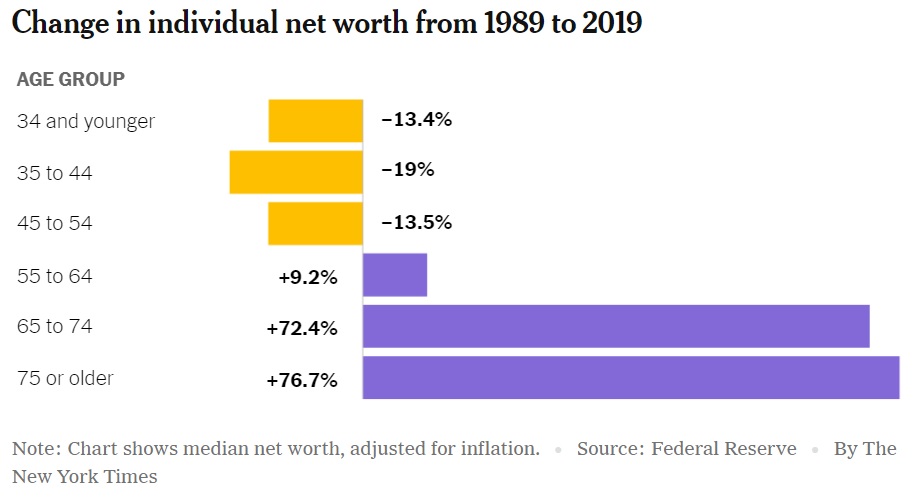
Anecdotally, I’ve often remarked to people who know me that I’ve checked the math- and in previous jobs I was being paid similar, or even superior amounts to those my parents (neither of whom finished any kind of higher education) were being paid at commensurate ages.
For example, in 2020 at the age of 33 I was being paid roughly $40,000 a year. An amount numerically identical to the income recalled from grade school projects conducted regarding the jobs of our parents, and from the crystal-clear recollection of the incessant financial arguing and fighting my parents did in all the years preceding their divorce in my mid-teens.
However, one of the striking differences in our financial standings is that when he (my father’s individual income) was being paid that same amount, it had the equivalent spending power of $71,219 of today’s money according to a quick reference of the National Consumer Price Index Calculator which, as the name implies, indexes historical inflation. It’s a host of factors like inflation, in addition to the introduction of credit scores as we know and engage with them today in the late 1980’s (a couple of years after my birth) which all in part contribute to the drastic differences in my overall financial lot in life juxtaposed with the lives of those who brought me (as with everyone) unwittingly into existence.
This would explain why at my current age they were already onto their second house, and both prior to and following their divorce my father was able, albeit sometimes at a noticeable stretch, to support himself and three or four other people in his family (wife and kids) on a single income. Feats utterly unimaginable to most of the contemporary working class (anyone who must trade their labor in exchange for income to survive), particularly those in my age range and younger! None of which is to say that I haven’t both personally known and frequently observed people significantly older than me in similar straits.

And all of this is just within the imperial core of the global hegemon of the United States. A country which benefitted economically on a series of fronts following World War II having seen next to no conflict or destruction on its home soil (with exceptions like Pearl Harbor and skirmishes in Alaska), and series of (by today’s standards radically) progressive government economic policies which prior to the 1980’s, and the disastrous initial implementation of Trickle Down economic policy saw decades of remarkable neoliberal prosperity which some in the 1990’s (before the thoroughly seeded consequences of policies like Trickle Down economics reached a fever pitch) even began to coin as the “End of History”. In short, with the fall of the Soviet Union- neoliberalism/capitalism had won out in the ongoing ideological battle vis-à-vis conduct and governance of civilizations, and an enduring age of prosperous stability had finally dawned.
But it hardly lasted. And in fact, since the early 2000’s the already teetering economic decline of most of the working class and runaway stratification of wealth inequality between the working class and ownership class began a sort of burnout runaway. Like a kite unfurling its line in a windstorm. With grim and consequential new precedents such as the U.S. Supreme Court decision to overturn century old legislation meant to keep corporate power and greed in check, in the form of legislation like Citizens United in 2009. It’s why besides just hoarding, and thus removing so much of the globally (labor) generated wealth from circulation, the top 400 of these few thousand avaricious jackals pay significantly lower taxes than the working class whose prosperity they’re ongoingly robbing. When your money makes money, you have nothing but time and resources to perfect the extraction of further wealth. It’s the performative inverse of the reason desperate people make ideal workers.
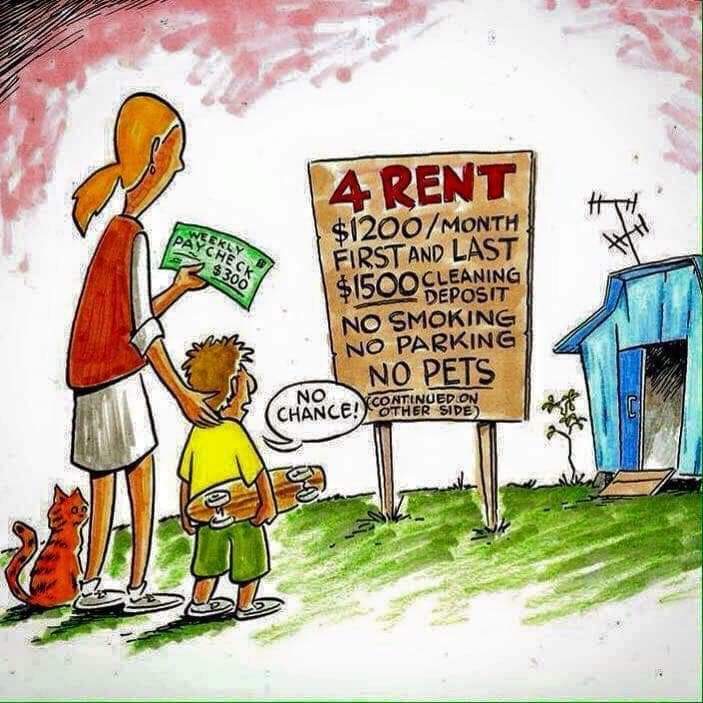
And all of this, as aforementioned, is just in the United States. It says nothing of the predatory and deleteriously extractionary relationship that so-called “developed” nations in the global north share with that of “undeveloped” or less developed, resource rich ones with hazardously liberal economic policies in the global south.
Writing this, and citing it is as tedious as I’m certain it will be upon completion to read. It all sounds so much like the ravings of a tin-foil hat madwoman at a glance, and the things I’ve outlined and explained are only just the tip of a much larger iceberg (to further compound the lunatic analogy)! The information is out there, but it’s a lot to learn.
And one of the mechanistic ways power in the form of financial wealth (imaginary numbers which serve as a sort of egregore for social power) embeds itself is that the more you have of it- as more “successful” people within the economic system do- the less receptive you become to the notion of being disenchanted of the illusions that support it. With exception to assuring that you maintain your survival and privilege. It worked for you, and consequently most of the people who are going to inhabit your social sphere/strata. The fairness or functionality of things that have benefitted you and those you more intimately know can be difficult to contest, or to not want to defend with some degree of adamance.
And thus the system entrenches in its vanguard its most resourced, and systemically powerful- often those with the most overt control and influence within the overall hierarchy it reflexively fashions.
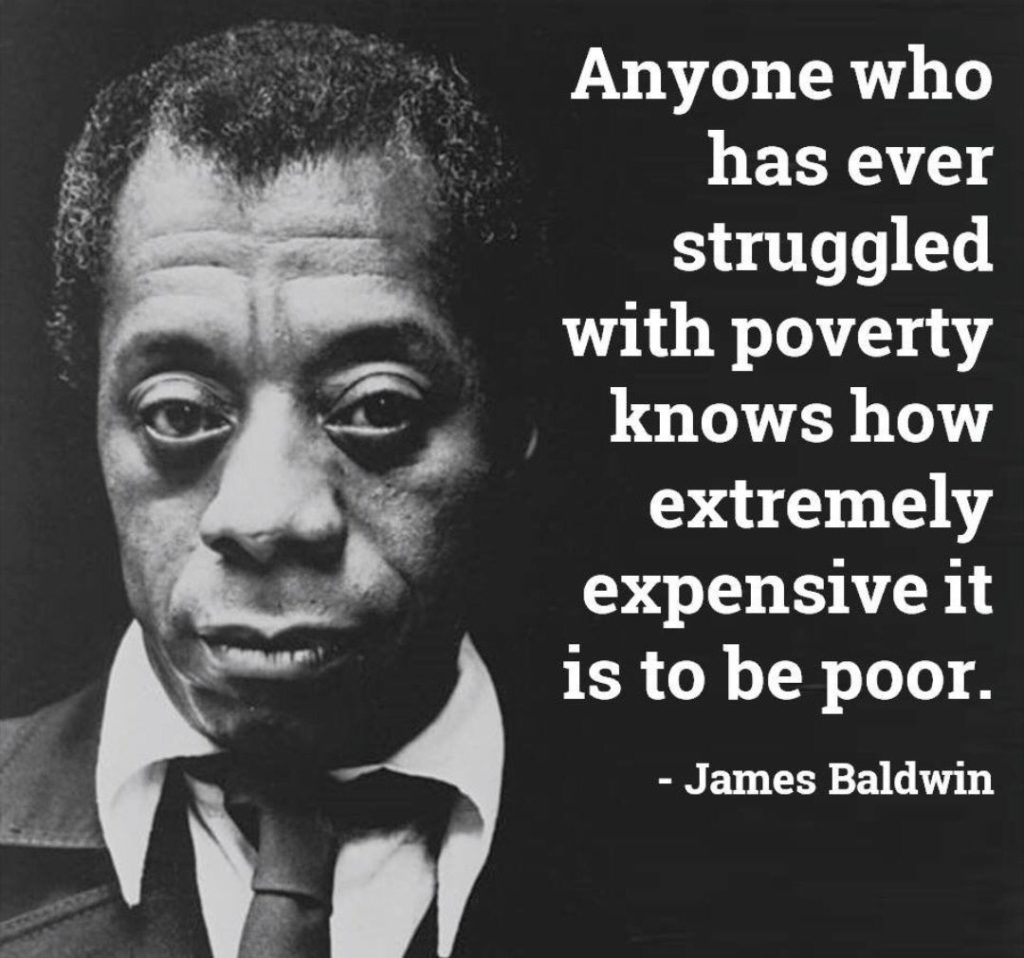
However, something that people don’t often expect is how economically versed people at the bottom of the financial totem in contemporary “developed” civilization frequently can be and often are as a result of the necessity for such fluency in their own survival. Some of the most economically savvy cats I’ve ever met have been (along with me) amidst the so-called dregs of society. You can see it with striking clarity in the ways economically unfortunate or disadvantaged people parse their given situations.
They just have less power and influence- fewer resources to effect or accomplish anything that would more widely broadcast their experiences and perspectives, overwhelmingly to the detriment of improving or otherwise changing them in any significant or enduring fashion. Again, this is all built in. It’s a feature, not a bug of the dumb, unthinking overall economic system. Everyone is slaved (to borrow a term used in computer programming and design) to their respective tier of things, with deliberately nominal movement between economic strata on net.
A recurring theme of this blog/website is the hell we know and its reciprocal fondness for us. And the ways in which we manifest and sustain or break through our individual and collective limitations based on things like our internal and social psychoemotional vocabulary and insight.
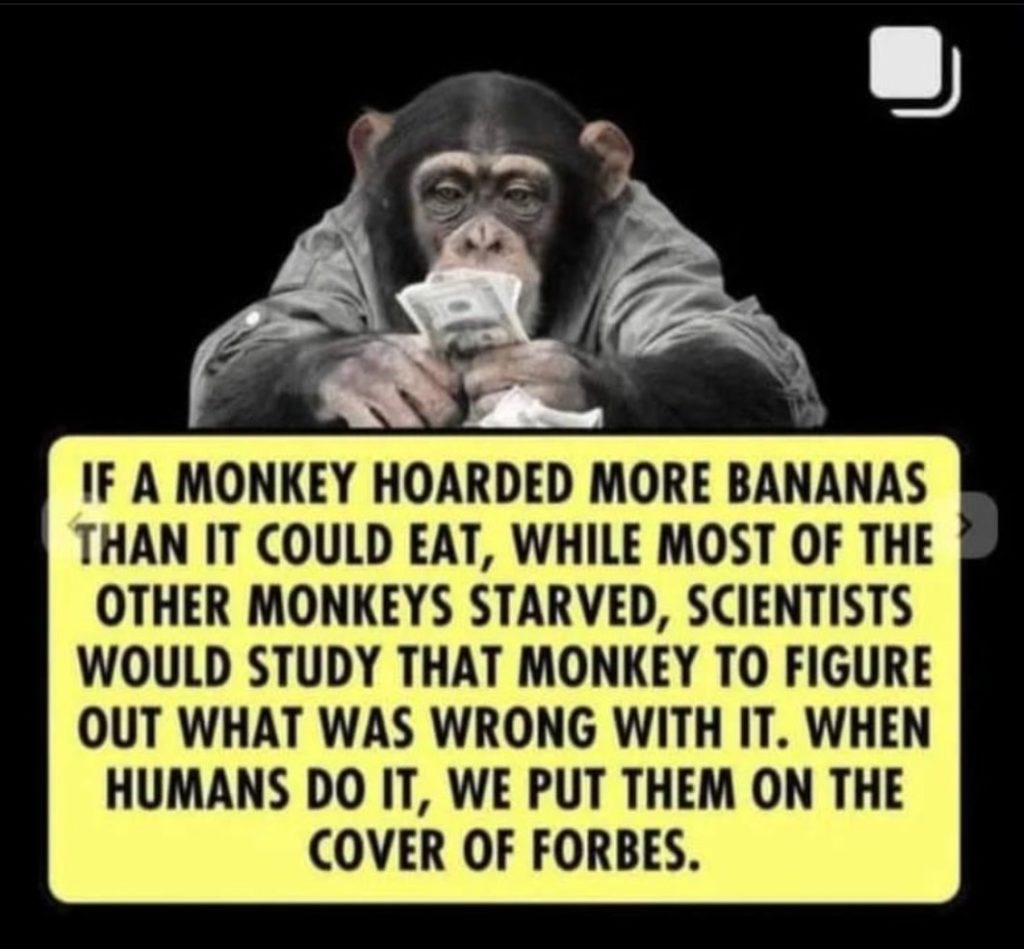
The creative birth of this article stems from a now nearly week old (at time of writing) conversation over a meal between myself, my husband, and a third party I won’t define in the interest of avoiding an accusatory tone or misgivings of disrespect.
We were parsing the state of the world, and the ongoing, generational financial and economic crises faced by ourselves and so many others like us when she confidently asserted sentiments to which I’m hardly a stranger in the face of such lamentations: that everyone is an individual, and people are inherently self-interested and greedy. Further that there must needs be some compromise that can be made to improve the overtly foundering status quo without outright excising the practice of earning prosperity (or a dignified life). Fulfillment of the social contract to contribute as its understood within a system that worked for her, and so many others like her from whom I’ve fielded similar or identical sentiments in back-and-forth debate or conversation.
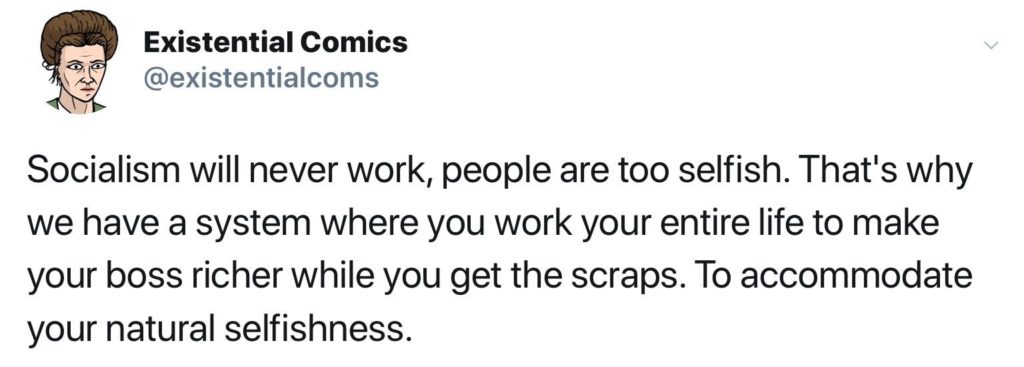
I would hardly peg her for an overall conservative person, but what she contended called to mind a popular expression I’ve heard over the years from the mouths of numerous conservative people (colleagues, professors, etc.) that, in some variation or another “The older you get, the more ideologically conservative you become.”
But this generalized assertion forsakes phenomena like latent juvenoia, or the fact that people with greater wealth and influence, and thus consequentially conservative tendencies often tend to live longer and continue to harbor more socioeconomic and political influence by virtue of said prosperity. It’s a sort of self-constructing overstated, nuance deficient folk wisdom. Of course a noticeable majority of conservative people who have more resources to keep them alive longer, and living better want to maintain things the way they are. Rich people live on average anywhere from about a decade to decades longer than their more impoverished counterparts depending on who you’re comparing. And that chasm, along with soaring wealth inequality, only continues to grow.
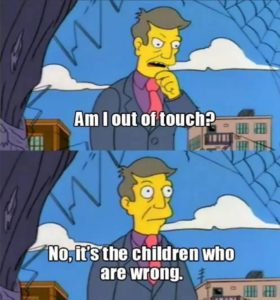
In fact, while her attitude and perspective reminded me of things like that expression- it wasn’t at all what she was arguing. Her discipline, intellect, wisdom, and capacity for empathy are qualities I profoundly admire in her. But her stated position struck me as being in stark contrast with those qualities and their consequential affects in my own person- and contrary to so much of my own formative ideology and the things about which I’ve already written at length in preceding articles and essays in places like school, work, and this very website. It provoked what any good, heady conversation does- and it got me thinking.
Part and parcel to my extensive body of personal experiences is the critical necessity for the dissolution of walls and other barriers to the long-term endurance and prosperity of the whole of humankind. And here was this exceedingly professionally successful woman, espousing a worldview she’d expressed verbatim before- inextricably defined by them. These popular capitalist notions of intrinsic selfishness and hyper-individualism as intrinsic modalities of existence. And who am I to say that her lived experience, and formative truths didn’t land her in her ideological position just the same as mine or anyone else’s?
It’s been my experience that one tends to more frequently encounter these attitudes and beliefs among the more successful, or more economically powerful crowd particularly from times when such virtues got people further during periods of greater (certainly by comparison) economic opportunity and prosperity. At least in contrast with realities they don’t occupy and cannot fully comprehend or sometimes even imagine- regarding things as they have become and continue developing to become further today.
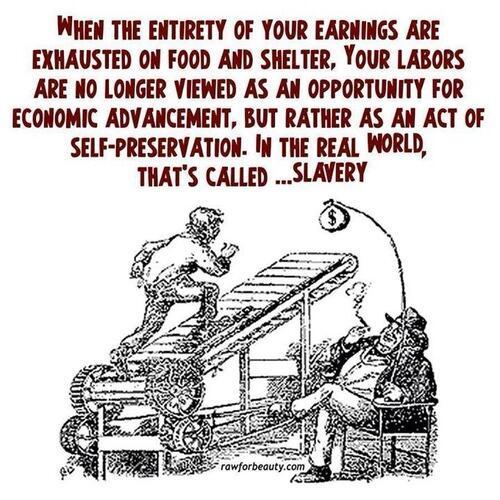
And in her line of work, it goes without saying she often contends with some of the worst in human nature and behavior on a regular basis, for decades (isn’t it funny how that doesn’t narrow things down much?). I can’t begrudge her that, or any of what she’s had to go through as a powerful, professional woman coming from times not that long ago when the rallying causes of equality and prosperity, or the net rights of women weren’t as concrete or visibly robust as they are today (even though so much of that is being actively undermined- a point of more elaborate consideration for another time). This is all to say that her lived experience and perspective deserves similar consideration to my own. But in seeking to comprehend or understand it, it got the wheels in my head turning.
Like it or not, in many ways (most of which I imagine are unintentional) she’s right. We are individuals. In fact, society has become paralytically, even necrotically atomized. And it’s for this reason, we’ve experienced over a period of decades, the gradual and heavily consequential decay of historically established sensibilities surrounding community. In many ways this trend is the culmination of the unyielding project of capitalism, insofar as its end goal is unabashedly to egomaniacally transform each of its individual constituents into their own brand. We not only learned this in the course of my business schooling, classes like marketing- but you can see it plastered absolutely everywhere from billboards to media advertisements, to placards at casual dine-in establishments where the transition has been made from professional advertising to the advent of the ubiquitous presence of social media “influencers”.
A few weeks ago, we were enjoying a spontaneous, belated breakfast (I refuse to use the word “brunch” on principle) date at such a restaurant, and the table we were seated at and menus we were handed were positively littered with advertisements for fare named after the social media microcelebrities who allegedly designed them. Pancakes and bacon themed after some YouTuber. Hash browns and sausage brought to you by some Instagrammer.
All this while it’s an oft-cited social joke that nobody even talks to their neighbor anymore, and younger people particularly are outright afraid of or allergic to answering phone calls. To say nothing of declining birth rates and even more fundamentally net sexual activity (as a sort of peak form of human intimacy) worldwide.
And have you ever stopped to take stock of how much emphasis and importance we invest in productivity? Outside of hustle culture, it’s still omnipresent in the way we frame ourselves and one another. How often do we hear in the news or throughout the media the hale declaration that someone is a “good productive citizen”? Or that the endgame of resolving homelessness, or managing X,Y,Z academic or professional initiative is to foster greater good, productive citizenry?
A lifetime of immersion in this logic from birth really gets in your head.
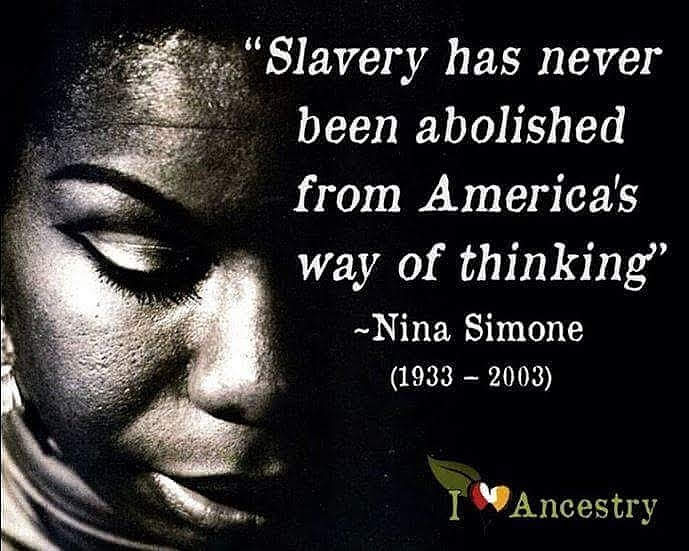
And the same way so many people born and raised in India are steadfast in their Hinduist beliefs, or people born and raised in various Middle Eastern nations are unshakeable in their worship of Allah- all of us who are born into the mindset of the socioeconomic structure overwhelmingly governing our material circumstances are immediately and unflinchingly certain that the zenith of our purpose is to be good and productive, and thus (allegedly) successful and prosperous.
It’s everywhere, from the way we regard our days as either productive or bad, to the nursery rhymes we learn as children. “First comes love, then comes marriage, then comes baby in a baby carriage.” 🎶 Fuck! Even in the act of loving, the end goal is to be (biologically re)productive. And that’s part and parcel of the distinction we draw in upholding social norms regarding monogamy, and outmoded ideals centered around the atomic family. It’s all right there in the nomenclature!
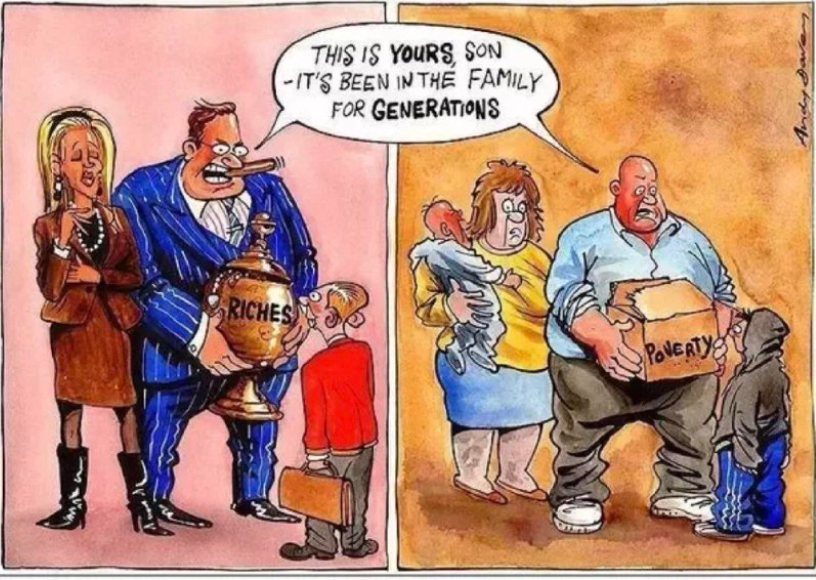
Isn’t it funny we can have endless love for our children, friends, and biological family- but romantic love is taboo or gauche to extend beyond a one-to-one ratio? We all need to find our “one.” Those are life’s quests: to find that brand of love, and to be professionally successful. Those are paramount priorities.
We’re incomplete and need to find our “one” to be happy and whole, and pump out more of those good, productive citizens in due course. You can’t exist almost anywhere, in any way without being inundated ad nauseum with these messages. Messages and ideals which are repeatedly and overwhelmingly demonstrably contrary to so many people’s natural inclinations and tendencies. Because it has so much to do with cultivating division and delineation, support, and sustenance of social order- more than anything else.
Jealousy and greed make excellent bedfellows. They’re emotional cousins with a powerful entourage effect. Like cigarettes and coffee. Or a good meal and a smoke. Or cigarettes and almost anything. Jealousy is the nicotine that really spices up greed’s greatest dopamine hits.
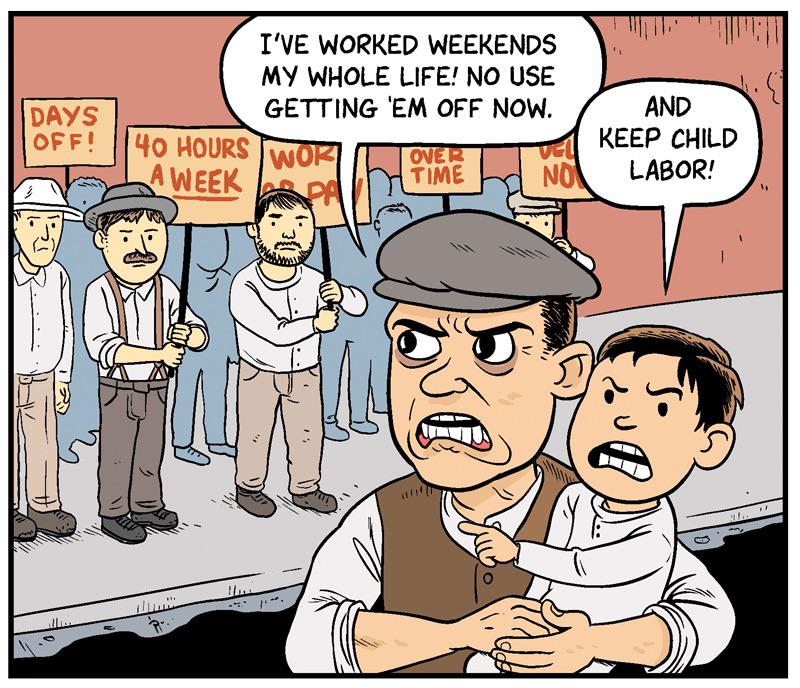
And a lot of people are weirdly ingrained with passionate convictions in adulation of their involuntary experiences of largely superficially imposed austerity. That because they suffered or “earned” their various degrees or successes that everyone else must, too.
Pay no mind to the net improvement of existence, present or future. It’s a rite of passage to learn the discipline of killing your less lucrative passions in pursuit of material stability, and if you’re lucky excess and power. That’s responsible adulthood. The death of your inner child, and the emergence of the stoic, enduring, disciplined, responsible work horse adult you absolutely must grow the fuck up and be. Get real.
If you don’t do it the way the people before you did, then their trials and sacrifices might be undermined or feel ludicrous. Tenaciously trading away all your youth and time, which can quite literally never be given back, for the (now overwhelmingly extinct) privilege of getting to relax more at the end of your existence is the bargain you strike if the vagina you pop out of isn’t at some astronomically rare set of GPS coordinates, by pure genetic and circumstantial chance.
But those stratified entrepreneurs who provide you with such a delightful opportunity are job creators and successful moguls. Captains and Captainesses of industry. CEOs and SHE-EOs!

Isn’t it so progressive?? People with different skin tones, and of different ages, even! (Though still overwhelmingly white, cis, and male. Asking why makes you a snowflake. Pull yourself up by your bootstraps, and stop being a victim. Make other people YOUR victims. Provide other people the mechanistically harrowing opportunity to realize your dreams and ambitions, at literal or metaphorical gunpoint if you can. It stimulates enthusiasm!)
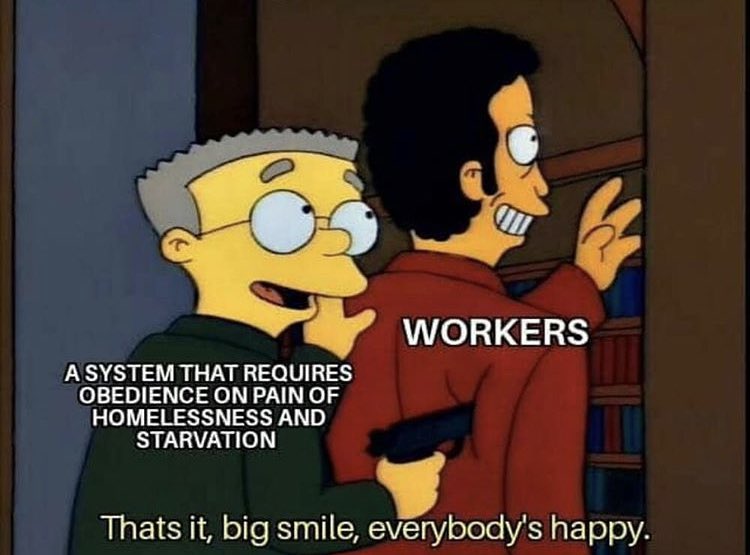
The core functional tenets of our entire global economic system by default enforce and set us all up to be in perpetual (to unnatural degrees) opposition with one another. Employers want us to do as much labor as possible for as little compensation as possible, and we want to do as little labor as possible for as much compensation as possible. And most of us by volume are one bad day away from poverty, whereas virtually nobody is one good day away from being wealthy. Short of pure luck, (mostly) genetic or otherwise.
Ideologues in favor of free market capitalist economics will often cite immutable natural truths like “survival of the fittest”, forsaking the nuance that Charles Darwin hated having coined the now thoroughly debunked expression, and that the wolves he so famously examined to arrive at it only acted as they did in unnatural, zoological environments of greater scarcity than they normally encounter in the wild. Their hostility was a situationally imposed survival reflex, not an incontestable truth of their nature.
His contemporaries, in fact many of the scientists involved within the institutions bearing his namesake- have come instead to argue in favor of the ideological assertion of “survival of the kindest” as a model for survival, growth, and progress. Again and again with these prevailing themes of natural collaboration over imposed competition as natural states of being and requirements for the endurance and progress of a species.
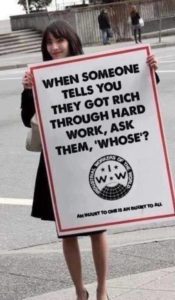
It’s the year 2022, and it doesn’t even remotely work the same as it did even just 30-40 years ago. Work-life balance is more completely, vanishingly slim to non-existent than any other time in recent history. Most people hardly have the means to meaningfully engage what scraps of time they’re granted.
Buy even a coffee, and that’s why you’re always poor! Economic gaslighting of the perpetually more impoverished workforce is astronomical.
The overwhelming majority of the global population is either scraping by or living in poverty (which just happens to be defined as “above poverty” by the power players who define monetary policy). It’s as rich as when the police, or any other government or private interest investigates itself and finds itself not guilty of something.
Historical figures like the Luddites warned us what would come of the growing power distances between economic classes in their aversion to technology for what it would do to the bargaining power of labor against those who employed them that were wealthy enough to invest in and own technological production infrastructure outpacing human abilities. The 1950’s and 60’s were speckled with the glitz and glamour of an atomic future unburdened by the necessity of strenuous labor and rife with technological advancement in the direction of ease of living, and more abundant luxury. Economists and futurologists boasted of shorter workweeks, and greater volumes of more robust and accessible leisure… and- remind me again- where are we now?
[Setting aside that in hindsight we can now realize that the Jetsons probably lived above the clouds because the planet below them was ravaged by catastrophic climate change, and George Jetson (the atomic, breadwinning patriarch) still performed wage labor for his boss, Cosmo Spacely- against his competitor Spenser Cogswell. There was still wage labor, and the necessity of currency- but hey, everyone had domestic robots and hovercrafts!]
We have more food than we need to feed every hungry human being on the planet, according to such scurrilous sources as the United Nations- and there are more houses than homeless people. So it follows that such issues as hunger and homelessness (as much as poverty) are fundamentally policy choices. Most of which the majority of us are too busy, powerless, or distracted to meaningfully engage in challenging the ways people creating them aren’t similarly impeded while instating them.
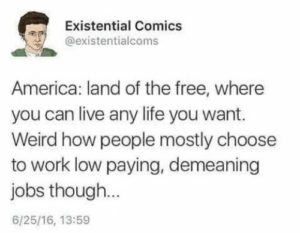
Of every single job I’ve ever held in my now more than two decades of engagement within the labor force- I’ve never found a one that has provided virtually any of what the prevalent hard work success myth alleges. Despite an abundance of determined effort and hurdle leaping. Even capital J jobs, or jobs within established institutions that were historically considered good “career” jobs. It simply doesn’t work that way anymore. And hasn’t for some time. By design.
The flip side, or perhaps turnaround on all of this is (to paraphrase Karl Marx- dun, dun, dunn) is that these collective hardships and decaying material realities have in many ways begun to have the inverse of their intended effects and provide some glimmers of hope. Marx reasoned that capitalism creates its own gravediggers, though I’m not sure it’s necessarily happening in ways he could’ve imagined.
This communal hardship of the vast, overwhelming majority of people, and the presence of unprecedented levels of technological power and communication have given voice, access, and power to the dissolution of these Darwinian, free market, hyper-individual barriers as people affected increasingly awaken to the realization that we’re all in these single, finite lives we’re concretely living- together. And we’re altogether powerful enough to make the world a better place to live out those lives, if we can only find the courage and wisdom to enable it. It’s not easy. Fear’s a helluva thing- plain and simple. And it’s addictive. Especially when things are very scary. Often specifically by social design in furtherance of perpetuation of the status quo.
With so much communication and austerity coinciding, there’s been a resurgence of global fascism everywhere from the U.S. (with the incipient resurgence of nazis in all their various forms) to Italy and elsewhere.
Vladmir Lenin is often quoted as having stated “Fascism is Capitalism in decay.” And ground swells of fear and division in the face of economic erosion, instability, and turmoil are fertile grounds to test this assertion. Minorities and other social outgroups are, as ever, frequently caught in the crossfire. Prime, already marginalized targets for suspicion and hostility in times of civil upheaval.
On the flipside, people are coming together in numbers unseen since the mid-1960’s to form labor unions and other communal social movements like Occupy Wall Street and Black Lives Matter to unite, rather than divide themselves and their communities around the common causes of greater communal abundance, personal and interpersonal dignity, and prosperity.
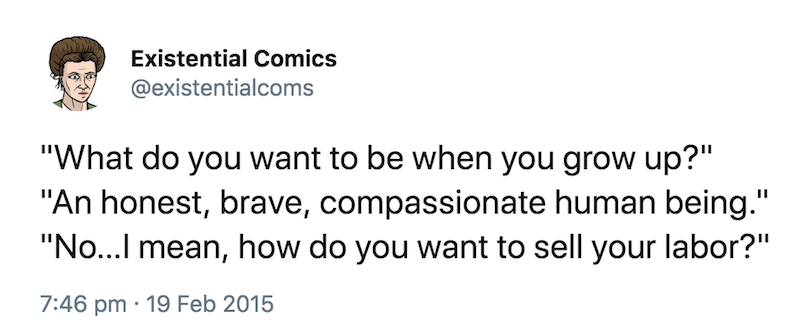
To my thinking, it remains to be seen if we’re gonna do a 𝘔𝘢𝘥 𝘔𝘢𝘹, Resource Wars future- or somehow negotiate with reason, insight, and wisdom anything more in the way of a 𝘚𝘵𝘢𝘳 𝘛𝘳𝘦𝘬 future for our species. It’s an ideological divide of fear, hostility, and safe familiarity against love, insight, and bold curiosity.
I find myself ideologically at odds with the assertion that everyone is fundamentally a competitively self-interested individual. For every police station, there’s a house full of fire fighters. Metaphorically speaking (I don’t know the actual numbers, and that’s not the point). When most people are given the means and opportunity, we constantly see examples of the inherently social and communal nature of human beings prevail. It’s where we shine best and brightest. And somewhere deep inside most of us, we innately realize this. Beyond fear and boundaries. As Fred Rogers famously said: “…You will always find people who are helping.” And by the numbers, it’s reality.

I think the decisions we make regarding what to do with our insights, wisdom, and resources collectively will determine much of where we go. After all, common wisdom also asserts that it takes a village.
I don’t know that it won’t have to get worse or be tremendously more horrific before we decide to snap the fuck out of all of this. But from all my experiences, internal and external- I must believe there’s still hope. My hope, like any other living thing, is that better nature prevails, and that I live to see it. Nobody can do it all alone, but together we can do virtually anything.

